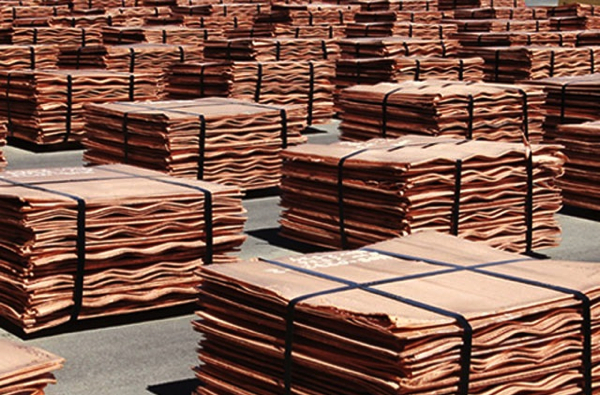August 12, 2015
One-Off Depreciation
On vacation in Greece, reading about the big economy that is even more screwed up than here: China. It is interesting to read about how the yuan depreciation is related to markets as far and wide as copper and corn.
Here is the most interesting reading for the day, a discussion of the Chinese copper carry trade written a couple months ago.
The copper carry-trade is a mechanism that western banks use extend loans to Chinese companies at high Chinese interest rates, while denominating the loans in dollars instead of yuan. It is a way of circumventing Chinese currency controls and make a pile of money for very little risk.
Did you know that China holds about 40% of the global copper stock in warehouses, due to this banking trick? That number doesn't include ongoing consumption, by the way. All this copper is held as collateral for financial transactions that circumvent Chinese currency controls, supplying foreign capital to Chinese business, making up about 31% of the short-term capital in China.
The carry trade has only been possible because the Chinese government has pegged the yuan to the dollar. Suddenly today the game has changed: a rapidly dropping yuan means the copper carry-trade is no longer a guaranteed money-winner.
From the carry-trader's point of view, the yuan drop looks like an attack.
"It is a lot of leverage and we may be just at the beginning of the unwind.... The PBOC can transfer the pressure offshore, they are saying you guys, foreign demons, have to foot the bill."

It is doubtful that China really has it in for London commodities traders, however. The real concern, from the point of view of China, appears to be a weak banking system plagued by nonperforming loans to government-run enterprises. From the other article:
... It actually gets directly to one the puzzles of Chinese monetary policy. That is, if Chinese banks are flush with cash as the PBOC claims and loan demand is low, why does the PBOC continue to release cash into the system via reserve rate cuts rather than cut interest rates when even the best SOE is facing real interest rates of approximately 10%? This would seem to have a much larger impact on the economy...
There appears to be a couple of reasons. First, China is still heavily dependent on capital inflows to finance its continued development.... The PBOC appears to be making the tradeoff of trying to continue to attract capital by keeping interest rate high even if that risks choking off businesses with absurdly high real interest rates...
Second, despite all public pronouncements to the contrary, this implies that banks are weaker than is believed... Given the PBOC and government mandate to buy up low yielding government bonds and continue lending to LGFV whether they are paying or have any prospect of paying, banks already appear weaker than public pronouncements. Slowing the capital inflow or giving reason for capital to flow out could really create problems for China's major banks.
So basically, China has been pumping cash from its huge foreign reserves to prop up the yuan and keep domestic interest rates high, to attract foreign capital and prop up its weak banks.
But Chinese investors have been using the opportunity to move money out of China. And rather than shoring up Chinese banks, the high interest rates enable the copper carry trade that siphons Chinese reserves into copper holdings by western banks. The declining foreign reserves in China are a measure of the drain of yuan-denominated capital from its economy, and the high cost of borrowed yuan is making it hard to do real business in China.
Now that China has let is currency drop, it seems to be giving up on private capital: no more copper carry trade, no more foreign capital, and no more holding the line against capital flight. The shift would seem to goose China's real economy at the expense of its bankers. But it is not clear if the strategy will work, because it will also rob China of its major source of capital. China is in a pickle because it doesn't have a very healthy internal banking system. It depends on the strength of foreign banks. We can now see if capital flight with a declining yuan "could really create problems for China's major banks," and if this is a situation that will cause real problems for the Chinese economy.
In the next couple days we will see how China responds to an estimated $1.1 trillion of US denominated carry-trade debt being sucked out of the country. How quickly will the capital take flight?
Yesterday, China promised that the 2% devaluation was a "one-off depreciation" only. But they lied, and they repeated it again today. How many times can China repeat its "one-off" currency devaluation before causing a bit of panic? One estimate is that the dollar peg has resulted in a 16% overvaluation in the yuan, and that China will have to depreciate more than that amount if it wants a cheap currency that will bring back the pricing advantage it saw a few years ago.